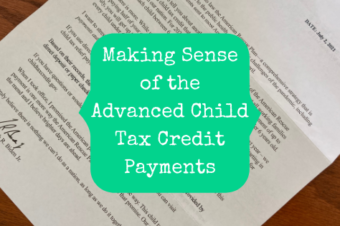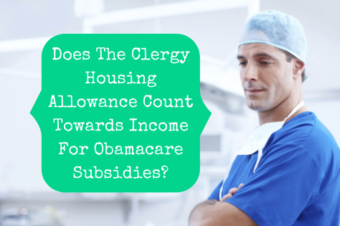
Every year, the federal government hands out money for free. However, one out of five people who are eligible doesn’t claim it.
That sounds crazy, right? Who foregoes free money? And how can you be eligible to get it?
For all you know, you might be one of the crazy ones. This free money I’m talking about comes in the form of the Earned Income Tax Credit (EITC). In 2020, the government handed out $57 billion in EITC alone. That means there was $14.25 billion last year up for grabs and some of it could have been yours.
What Is The Earned Income Tax Credit?
The EITC is the government’s attempt to offset some of the payroll taxes for lower-income workers. Everyone pays payroll taxes at a flat rate (more or less). It is not a progressive system like income taxes where those with more earnings pay a larger percentage of their income. To make things more progressive and lighten the load on those that don’t make as much, they created the Earned Income Tax Credit.
The EITC is a refundable credit. That means first it is used to offset your income tax bill. If you’ve taken your tax liability down to $0 without using up all of the EITC, then the IRS will cut you a check for the remainder. Pretty nice, huh?
How Does The Housing Allowance Affect The Earned Income Tax Credit?
The EITC is based on income, which is rather straightforward for most people. But not pastors. Does the housing allowance count as income or not? The answer to that question flips back and forth depending on the government program or tax benefit that you’re referring to. In this case, the answer is both yes and no. Like I said, not very straightforward.
If you have opted out of Social Security with Form 4361 or Form 4029, then your housing allowance DOES NOT count as income for purposes of calculating the Earned Income Tax Credit. If you’re exempt from self-employment taxes, then your housing allowance is exempt from counting towards the EITC. When you do still participate in the Social Security system, then your housing allowance DOES count as income for the EITC. It is part of your net self-employment income.
No Social Security = No Housing Allowance
Yes Social Security = Include Housing Allowance
How To Claim The Earned Income Tax Credit
If 20% of the people eligible for this refundable tax credit don’t claim it, how do you know if you’re one of them? The IRS has a nifty calculator, called the EITC Assistant, to help you. You’ll need to input your income, so make sure you are including/not including your housing allowance per the guidelines above.
The first step in claiming the tax credit is filing a tax return. Even if you don’t owe any taxes, you will need to file a return in order to claim the credit. If you file your own taxes, make sure to follow the IRS instructions for calculating the EITC carefully. Here is a handy list that they’ve published of errors to watch out for. The EITC is a part of the regular Form 1040 tax return, so you will see it come up as you fill out your forms. When using tax preparation software, make sure that things are calculated correctly, because not all software is programmed properly for the minister’s housing allowance!
After reading this, you may be thinking about previous years’ returns and wondering if you missed out on some money. Worry not! You can claim the EITC for prior years by filing an amended return. This IRS page has all of the information you need in order to do it.
If you are looking for a tax preparer, there is a list of reader-recommended professionals at the end of this article.




6 Responses
Bruce
February 1, 2021Your article on “How Pastors can claim the Earned Income Tax Credit” was a great article. However you failed to answer ONE question. What if you do/did file a form 4360 many years ago and you also have enough quarters in from years and quarters worked OUTSIDE of the ministry field to qualify for Social Security? What is the verdict on this question? Qualify for Earned Income Credit or Not? Thank you!
Amy
February 2, 2021Bruce, the EITC is calculated based on the current tax year’s income. Income from previous years does not affect it. If you have an approved Form 4361, then the income that you will use to qualify for the EITC will not include your housing allowance. If you also have secular income from which you are paying into Social Security, that income would count as well.
Chasz Parker
February 1, 2021Great article! The Earned Income Tax Credit is a compensation booster hiding in plain sight for pastors with limited incomes. If you need an idea for another tax article, please consider writing about the Saver’s Tax Credit and its positive implications for pastors and those in ministry. Thanks!
Amy
February 2, 2021Great idea, Chasz, I will add it to my list of things to write about!
Fmr Accountant
February 2, 2021A key to understanding the EITC is that it peaks in a certain income range based on filing status and number of eligible dependents. The problem with many pastors that I know is that their AGI actually falls below this income range that would yield the maximum EITC.
Pastors who have opted out of Social Security and whose AGI falls below the maximum EITC income must understand that it is they, the pastor who has opted out of SS and who knows how much he actually spent on excludable expenses, to determines the exact amount of their Housing Allowance exclusion. A church may designate $10,000 of a pastor’s income as Housing Allowance, but if the pastor spends only $8,000 on excludable expenses he may not claim the fully authorized $10,000. He must show the difference ($2,000) as taxable income.
Conversely, if the pastor spends $15,000, he may not claim the full $15,000. He must include what he spent over and above his authorized Housing Allowance ($5,000) in his taxable income. A Housing Allowance is only the maximum that may be excluded from a pastor’s income for income tax purposes–it is not the only figure that can be excluded.
A taxpayer is not legally required to take all deductions available to him, and this applies to the housing allowance. If a pastor who has opted out of Social Security finds that their MAGI places them at a level below the maximum EITC, they should consider not claiming all of their Housing Allowance in order to raise their MAGI. They might find that the income taxes on the increased MAGI may well be offset by the increase in EITC.
Amy
February 2, 2021Thank you for your added insight!